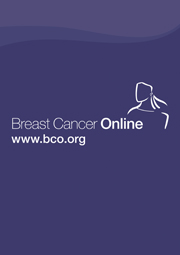SBG – Contact Details
Country
Scandinavia
Chair
B. Ejlertsen, Department of Oncology 5012, Rigshospitalet, Blegdamsvej 9, DK-2100 COPENHAGEN, DENMARK. Tel: +45 35455088 Fax: +45 35456966 Email: [email protected]
Website
SBG – Study Details
Title
High-dose chemotherapy + autologous stem cell transplantation compared with dose escalating chemotherapy in breast cancer with poor prognosis ≥ 8 positive lymph nodes or ≥ 5 lymph nodes combined with R-combined with either G II–III or high S-phase. A randomized study.
SBG 9401
Coordinator(s)
J. Bergh, Radiumhemmet, Karolinska Institutet & University Hospital, S-17176 STOCKHOLM, SWEDEN. Tel: +46 8 51 77 62 79 Fax: +46 8 51 77 95 24 Email: [email protected]
N. Wilking, Department of Oncology, Karolinska Institutet & University Hospital, S-17176 STOCKHOLM, SWEDEN. Tel: +46 87 29 43 09 Fax: +46 87 29 51 96
Summary
- Closed in March 1998 (opened on 1 March 1994)
- Target accrual: 500 patients
Objectives
- To compare disease-free survival of high-risk breast cancer patients treated with either high-dose chemotherapy + autologous stem cell transplantation or dose-escalated chemotherapy (CEC) both as adjuvant treatment.
- To compare survival, safety, dose-intensity and total dose between the two treatment arms.
- To assess quality of life.
Scheme

Update
- Study closed in March 1998.
- 525 patients randomized.
- Reported in The Lancet 2000.
- New update 2003.
- Final update 2008.
Related Publications
Brandberg Y, Michelson H, Nilsson B et al. Quality of life in women with breast cancer during the first year after random assignment to adjuvant treatment with marrow supported high-dose chemotherapy with cyclophosphamide, thiothepa, and carboplatin or tailored therapy with fluorouracil, epirubicin, and cyclophosphamide: Scandinavian Breast Group Study 9401. J Clin Oncol 2003; 21: 6359–3664.
Topics
- High dose chemotherapy
- Treatment tailoring
Keywords
Anthracyclines, high-dose therapy, node positive breast cancer
***************************************************
Title
Standard CEF-60 versus tailored CEF in high-risk primary breast cancer.
SBG CEF-60, SBG 2000-1
Coordinator(s)
C. Blomquist, Department of Oncology, Helsinki University Central Hospital, P.O. Box 180, 00029-HUCH, HELSINKI, FINLAND. Tel: +35 840 548 6580 Email: [email protected]
M. Anderson, Department of Oncology 5074, Finsen Center Rigshospitalet, Blegdamsvej 9, DK-2100 COPENHAGEN, DENMARK. Tel: +45 35458105 Email: [email protected]
J. Bergh, Radiumhemmet, Karolinska Institutet & University Hospital, S-17176 STOCKHOLM, SWEDEN. Tel: +46 8 51 77 62 79 Fax: +46 8 51 77 95 24 Email: [email protected]
Summary
- The study was open from February 2001 to August 2003. 1535 patients received the first course of standard FEC, accrual completed.
- 1052 patients were randomized.
Objectives
- To study whether retrospective observations indicating suboptimal effect of CT in patients not experiencing toxicity can be confirmed in a prospective study.
- To study whether dose-escalation in patients not experiencing leukopenia improves prognosis.
Scheme
First cycle of CEF-60:
- If WBG GR III/IV: continue with 6 cycles of CEF-60/reduced dose
- If WBG GR 0–II: randomize to 6 cycles of CEF-60/escalated CEF
Update
- First analysis based on event rate 2007/2008.
Related Publications
None available
Topics
- Treatment tailoring
Keywords
Anthracycline, treatment tailoring, node negative breast cancer, node positive breast cancer
***************************************************
Title
HABITS – Hormonal replacement therapy after breast cancer diagnosis – is it safe?
BIG 03-97
Coordinator(s)
L. Holmberg, Regional Oncologic Center, University Hospital, S-75185 UPPSALA, SWEDEN. Tel: + 46 18 15 19 10 Fax: + 46 18 17 44 45 Email: [email protected]
Summary
- Opened in 1998, closed in December 2003 for safety reasons
- Target accrual: 1300 patients
Objectives
- To investigate in women with radically treated in situ, stage I or early stage II breast cancer if the use of hormone replacement therapy (HRT for menopausal symptoms) is safe concerning risk of breast cancer recurrence.
- To look at quality of life and risk of breast cancer death.
Scheme

Update
- At the end of accrual 434 women were randomized. After a medium follow-up of 2.1 years, 26 women in the HRT group and seven in the non-HRT group had a new breast cancer event, corresponding to a relative hazard for HRT treatment of 3.5 (95% confidence interval 1.5–8.1). During 2005 and 2006 a new monitoring round was completed and new analyses presented during autumn 2006.
Related Publications
Holmberg L, Anderson H, for the HABITS-steering and data monitoring committees. HABITS, a randomised comparison: trial stopped. Lancet 2004; 363: 453–455.
Topics
None available
Keywords
Breast cancer, menopausal symptoms, hormonal replacement therapy
***************************************************
Title
A phase II study continuing into a randomized phase III study comparison of safety, feasibility and efficacy of: dose dense and tailored and dose escalated epirubicin + cyclophosphamide followed by docetaxel (dEC→T) or dose dense epirubicin + cyclophosphamide followed by docetaxel (EC→T) or docetaxel + doxorubicin + cyclophosphamide (TAC) in lymph node positive breast cancer patients.
SBG 2004-1 STUDY
Coordinator(s)
J. Bergh, Radiumhemmet, Karolinska Institutet & University Hospital, S-17176 STOCKHOLM, SWEDEN. Tel: +46 8 51 77 62 79 Fax: +46 8 51 77 95 24 Email: [email protected]
Summary
- First patient randomized in December 2004
- Randomized feasibility study: Target accrual: 120 patients
- Randomized phase III 2-armed study: 900 patients
Objectives
- For the phase II part: evaluate safety and feasibility in the three treatment arms.
- Evaluate the dose intensity in the three treatment arms.
For the Phase III Part:
Primary Objective
- Compare breast cancer recurrence-free survival (BCRFS), in the dtEC→dtT (tailored doses) arm compared with the EC→T (fixed doses) arm.
Secondary Objectives
- Compare distant disease free survival (DDFS).
- Compare event-free survival (breast cancer relapse, contralateral breast cancer, other malignancies).
- Compare overall survival (OS).
Additional aims/biological markers.
Scheme

Update
- 120 patients entered on 8 May 2005.
Related Publications
None available
Topics
- Dose densification
Keywords
Adjuvant chemotherapy, dose dense, node positive breast cancer, anthracyclins, taxanes


